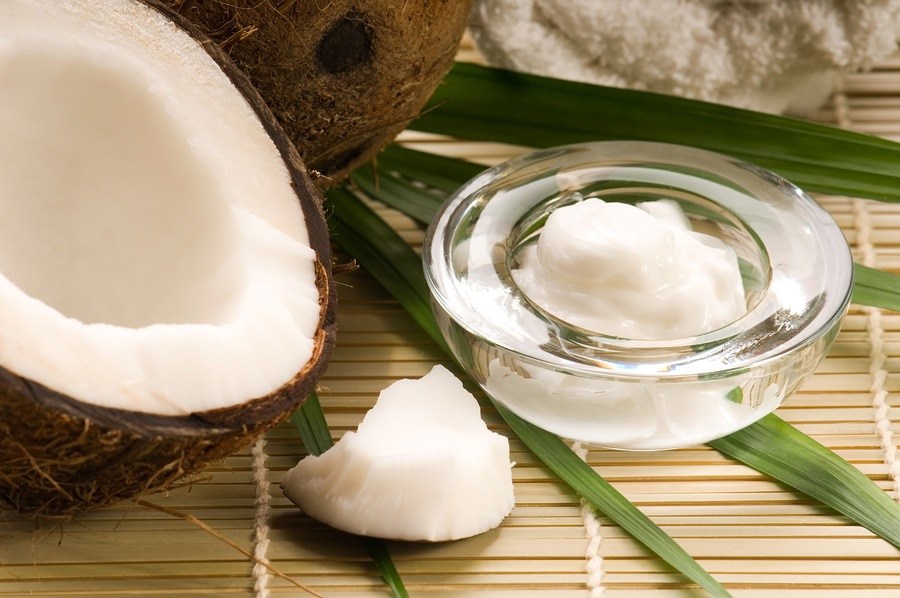
by Paul Fassa
Health Impact News
A 2015 study in India was devised to give scientific authenticity for a traditional Indian practice of massaging newborns’ skin with coconut oil. The study was published by the Journal of Tropical Pediatrics, in September 2015 as “Topical Oil Application and Trans-Epidermal Water Loss in Preterm Very Low Birth Weight Infants-A Randomized Trial.”
The researchers’ objective was to determine coconut oil’s protection against trans-epidermal water loss (TEWL). There have been many attempts at resolving preterm and term birth water loss among newborns that are more along the technical lines of Western medicine’s hospital hardware.
This was the first study that focused on the traditional Indian method of massaging the infants with coconut oil.
How important is handling TEWL with newborns? This excerpt from another TEWL preterm infant study, which tested phototherapy with halogen spotlights to minimize transepedermal water loss, explains the importance of curbing TEWL in newborns, especially preterm infants.
“If… compensation of the high water losses in the preterm infant fails, dehydration, hypernatremia, and hyperkalemia may result, and it even may contribute to the complications of intraventricular hemorrhage and arrhythmia.”
That study, published in the journal Pediatric Research, determined that with halogen spotlight phototherapy there was still sufficient TEWL that need to be compensated with added water intake for preterm infants.
What the Indian Study Using Coconut Oil Determined
The researchers divided 72 newborns with very low birth weights randomly at 12 hours of age into two groups of 37 each. The median gestation period (pregnancy term) was 32 weeks, which means that most if not all of them were born before the normal gestation period of nine months.
One group was given coconut oil topically applied twice daily without massage. In order to create comparisons, both groups were monitored for trans-epedermal water loss (TEWL) every 12 hours. After seven days of applying coconut oil to the test group, swabs were taken from all infants’ outer bodies to determine and compare skin quality and bacterial levels.
The researchers discovered the coconut oil treated infants had significantly lower TEWL than the group that was not treated topically with coconut oil. Those coconut oil treated newborn infants were without skin bacterial colonization and displayed an overall better quality of skin than the untreated group.
Not many westerners will have the opportunity to apply coconut oil to their newborns unless they do home birthing with a competent midwife assisting. But we can all benefit from coconut oil’s hydrating, antioxidant, and antiseptic properties for our skin, well beyond what commercial cosmetic lotions and creams actually offer.
What’s Special About Coconut Oil?
Coconut oil is a saturated fat with medium chain triglycerides (MCT), which makes coconut oil less likely to oxidize and turn rancid like poly-unsaturated oils used for commercial skin lotions and creams. This also minimizes free radical damage to epidermal skin cells.
The MCT quality is what enables dementia victims to improve with a daily ingestion of coconut oil. You may have heard or read about dramatic results from Alzheimer’s patients who ingested coconut oil daily. The liver easily processes MCTs into energy without storing them as fat to create ketones.
Ketones are readily used metabolically by brain cells in lieu of sufficient glucose access or insulin resistance that leads to or is diabetes 2. This aspect of metabolism has led some medical experts to label Alzheimer’s disease as “diabetes 3.” More and more older folks who experience brain fog or memory lapses have turned to ingesting coconut oil to prevent Alzheimer’s.
But getting back to topical skin health applications, coconut oil is around 50 percent lauric acid, a fatty acid with antibacterial, antiviral, and anti-fungal properties. Lauric acid has demonstrated anti-cancer capabilities during “in vitro” (petri dish or test tube) testing on cultured cancer cells with amazing results. It seems that coconut oil’s lauric acid would at least protect against or possibly help reverse skin cancer with topical applications.
See here:
Induction of Apoptosis by the Medium-Chain Length Fatty Acid Lauric Acid in Colon Cancer Cells due to Induction of Oxidative Stress
Coconut oil is also ideal for helping resolve skin issues such as: eczema, acne, psoriasis, dandruff, rashes of all types, and external fungal infections, including candida overgrowth. Some are highly pleased with how well coconut oil works as a hair conditioner. There are many testimonials from people who have used coconut oil for practically all those skin disorders that you can review here:
Virgin Coconut Oil for Skin Health
Coconut oil’s hydrating qualities moisturize drying skin, a common symptom of aging. Many have ditched their commercially hyped “anti-aging” creams, which may be toxic or carcinogenic, to discover that coconut oil does what they claim better and without side effects. It can be used to remove make-up. Men can use it for shaving to get a close shave with real healing properties.
Coconut Oil as a Sunscreen
It’s tragically ironic that most commercial sunscreens contain carcinogenic compounds and allow UVA rays through from the sun while blocking UVB rays. UVA rays cause skin damage while UVB rays help create vitamin D, the sunshine vitamin. Vitamin D is a source of many hormonal functions, bone health, immune system fortification, and even cancer resistance.
Good news for tennis addicts, surfers, and all other active outdoor enthusiasts. You can use coconut oil as an effective sunscreen without the toxic sometimes carcinogenic ingredients to prevent sunburn. If you don’t use it and do get sunburn, coconut oil will help reduce itching, pain, and blistering from that sunburn.
If using coconut oil by itself as a sunscreen doesn’t appeal to you, there is a recipe for creating a sunscreen with coconut oil and other ingredients to make it more efficient and easier to carry and use as a butter. Coconut oil melts at 76 degrees F, which may be unwieldy for outdoor use.
The recipe is available here:
Homemade Coconut Oil Sunscreen Recipe
Incidentally, if your coconut oil melts, it’s okay for using as indoor topical applications or cooking. But if you have a need for making it solid, monitor its refrigeration. It can become too hard and unwieldy for indoor use!
Storing coconut oil in a cool shady spot for long periods is perfectly safe with high quality coconut oils. Virgin coconut oil’s own biochemical make-up gives it a long shelf life without preservatives or refrigeration. This article, which focused primarily on topical application summaries was merely the tip of the coconut oil benefits iceberg.
There are many more health benefits and practical applications that invite more exploration and use by health conscious consumers. Here’s a good place to start exploring.
Sources:
Transepidermal Water Loss During Halogen Spotlight Phototherapy in Preterm Infants
Virgin Coconut Oil for Skin Health
Using Coconut Oil as a Natural Sunscreen – Organic Sunblock Recipe
Virgin Coconut Oil:
How it has changed people’s lives and how it can change yours!
Includes 85 recipes – Free shipping available!
Save



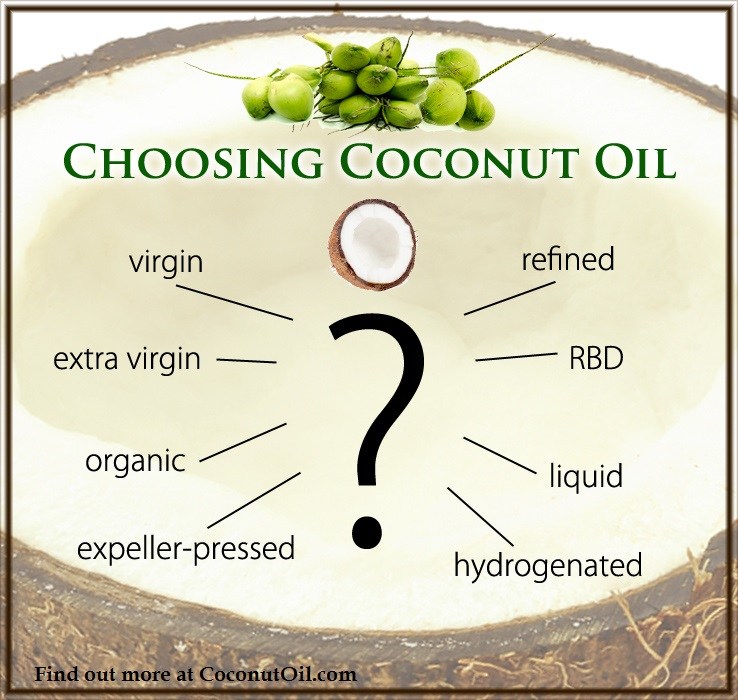

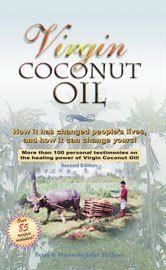
 Coconut Oil Continues to Benefit Alzheimer's Patients over Drugs as Studies Continue for Neurological Benefits
Coconut Oil Continues to Benefit Alzheimer's Patients over Drugs as Studies Continue for Neurological Benefits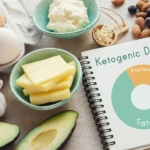 How the Simple High-Fat Low-Carb Ketogenic Diet Continues to Change People's Lives
How the Simple High-Fat Low-Carb Ketogenic Diet Continues to Change People's Lives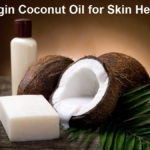 New Studies Continue to Show that Coconut Oil is the Best Oil for Treating Skin Conditions and Maintaining Healthy Skin and Teeth
New Studies Continue to Show that Coconut Oil is the Best Oil for Treating Skin Conditions and Maintaining Healthy Skin and Teeth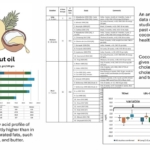 New Study Confirms Health Benefits of Coconut Oil and USDA False Claims Against It
New Study Confirms Health Benefits of Coconut Oil and USDA False Claims Against It The FDA has NOT Banned Trans Fats! Traditional Saturated Fats like Coconut Oil Continue to Shine for Alzheimer's Disease but are Condemned by U.S. Dietary Advice
The FDA has NOT Banned Trans Fats! Traditional Saturated Fats like Coconut Oil Continue to Shine for Alzheimer's Disease but are Condemned by U.S. Dietary Advice
2 Comments